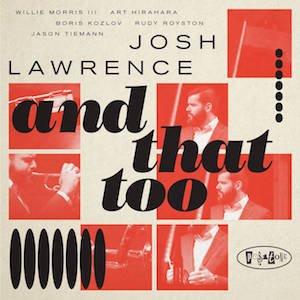Label: Self released , 2025
Personnel - Stefano Rocco: guitar; Nick Southcott: piano; Muhamed Mehmedbasic: double bass; Ed Rodrigues: drums.
Italian-born, Sydney-based cross-genre guitarist and composer Stefano Rocco presents his sophomore album, Wildlife, alongside his faithful quartet (formed in 2019), featuring pianist Nick Southcott, double bassist Muhamed Mehmedbasic, and drummer Ed Rodrigues. He describes this new body of work as ‘an expedition through the animal kingdom’, showcasing a charismatic musical aesthetic shaped by various jazz currents.
The title track, “Wildlife”, is smartly sculpted in a triple meter, featuring a harmonically rich treatment and a forward-looking, well-paced melody. Arpeggiated piano passages lend it a dreamy aura before it abruptly shifts into a driving 4/4 hard-bop swing. The subsequent track, “Cat Walk”, dabbles in smooth crossover jazz reminiscent of Michael Franks and George Benson, with feel-good solos from Rocco—who delivers fine bluesy chops—and Southcott.
While “Coral Reef” thrives on shifting tempos and guitar riffing in a soulful post-bop context that reminds us the initial phase of Pat Metheny Group, the playful yet assertive “Elephant Stomp”, propelled by Rodrigues’ marching snare, ventures into the soul jazz realm of Kenny Burrell and Grant Green. A wild bass solo emerges from the middle passage, while Latin-tinged piano flourishes subtly color the piece.
“Owl’s Flight” reflects Rocco’s modern compositional approach, while “Dreamy Koala” sets a warm, inviting tone with crisp storytelling, highlighted by guitar harmonics and delicately paired piano notes that, while not explosive, are deeply satisfying. The album closes with “Is It You Chameleon”, a waltzing ballad that gradually intensifies and wins us over with its melodic trajectories.
Rocco’s musical tastes are both complex and unexpected, and the album’s arrangements reflect his refined artistry. The chemistry and commitment of his quartet are palpable, and the favorable impression is further enhanced by the fact that these musicians never resort to pyrotechnics to impress.
Favorite Tracks:
02 - Cat Walk ► 05 - Coral Reef ► 06 - Elephant Stomp












